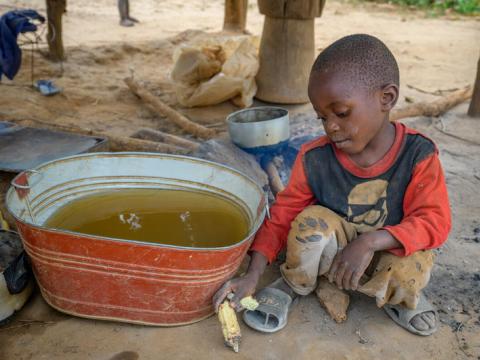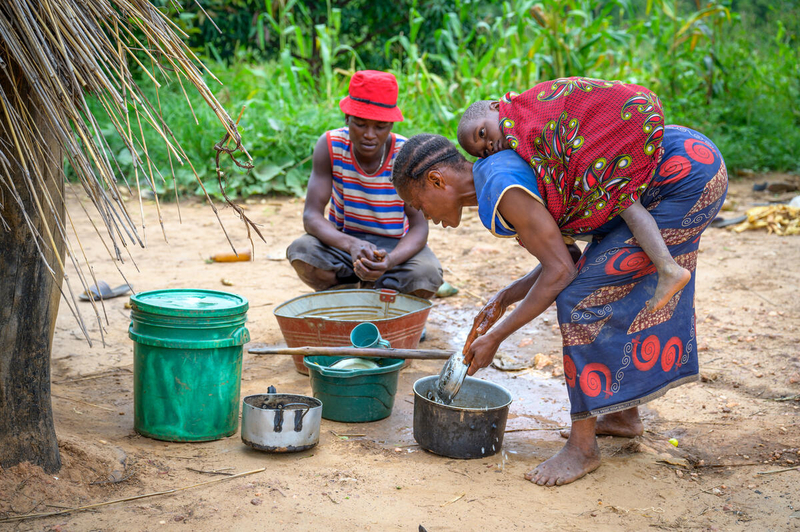The Burden of Clean Water Access on Women Like Susan in Rural Zambia

Susan Musole, age 45, broke down in tears several times as she talked about her family’s need for clean water and how they suffer without it. During the rainy season, this mother of seven and grandmother of three travels 40 minutes round trip to a nearby stream to gather water. During the dry season, her walk extends to two hours one way.
That repeated burden has left her with chest pains. “My chest is completely gone. It was destroyed because of the containers I carry,” she says. One time, she fell while carrying water and injured her kneecap, which still hasn’t returned to its normal shape. She has not visited a health facility for treatment. On her return trip, the time increases to three hours due to the weight of the water and her need to stop repeatedly to rest her leg and recover from the chest pains.

Susan’s husband, Shadreck, struggles to farm enough to feed the family, but that’s a job that requires both of them. He needs Susan’s help. They used to earn extra income by burning charcoal; however, the government has banned this environment-destroying practice.
Now, the family survives on just one meal a day, usually nshima, a sticky corn porridge. The children are often sick with diarrhea caused by the contaminated water. Their 5-year-old son has suffered from malnutrition for the past two years.
As a mother, Susan feels this hardship deeply. “Often, I do cry, even when I go to get water. I cry. I talk to myself like a mad woman,” she shares.
The school-age children go to class in dirty uniforms, and the family cannot bathe often. This leads to ridicule from peers and diminishes their standing in the community.
Susan laments, “At the moment, we are a laughingstock. Everyone is laughing at us because of the poverty we are in.”